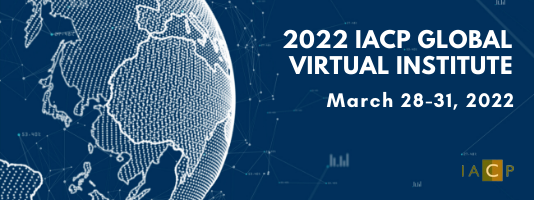Sessions are shown in PDT, click here to see check your local date and time.
Monday March 28th AND Wednesday March 30th from 6am-9am PDT
Laurie Stein & Melissa Lafreniere present: Trauma Informed Practice for Collaborative Practitioners
Do you ever wonder why some clients resist a good settlement, sabotage meetings or hinder progress? This introduction to trauma informed practice is an interactive workshop designed for professionals (mental health, financial neutrals, lawyers and mediators) who want to learn more about how to recognize and sensitively respond to people who have experienced trauma in multiple contexts as well as through separation and divorce. We will be exploring the theories of trauma and what a trauma informed approach looks like in Collaborative Practice. You will have the opportunity to develop and incorporate curious and narrative therapy based questioning and skills. You will learn to further uncover your client’s concerns, blocks and reactions and support them more effectively when navigating difficult and emotionally driven conversations. As a participant, you will also take away some practical tools to help you respond to your client’s fear based reactions and challenging behaviours in a more trauma informed way.
Monday March 28th AND Wednesday March 30th from 5pm to 8m PDT
Pauline Tesler & Nancy Ross present: Handling The Very Challenging Collaborative Case: A Seminar and Workshop
Roughly 5% of the divorcing population involves one or two partners who are ill-suited for the challenges and demands of a Collaborative divorce, because of cognitive or emotional impairments, character disorders, substance abuse problems, or other characteristics that make it difficult or impossible for them to behave with respect and take personal responsibility for divorce decisions. Should we take them on as Collaborative clients? And if we do, what are the predictable challenges? How can we deliver on the promises of Collaborative Divorce in the face of those challenges? This session will explore these questions in depth, and will investigate practical approaches we can bring.
Tuesday March 29th AND Thursday March 31st from 5am to 8am PDT:
Deb Gilman presents: You Can't Make Me: Understanding and Managing Resistance
Resistance to change comes up in our work often. Resistance makes us feel anxious, (or maybe even incompetent,) as professionals, impacts client participation, and is predictive of poor outcomes in the Collaborative process. Often, resistance is viewed as a client behaving defiantly. A more constructive viewpoint is that resistance is an indication that the client may not be ready to change. Resistance is a signal to the professional team that you may need to change direction or listen more carefully. This requires you to understand your client's perspective and proceed from there. Recognizing resistant behavior and underlying motivations helps to identify best approaches to responding to unwilling clients. Resistance actually offers an opportunity to respond in a new, perhaps surprising, way and to take advantage of the situation without being confrontational. Thus, effectively creating cooperation between professionals and clients and eliciting change by strengthening desires, abilities, and reasons for change.
**CANCELED** Tuesday March 29th AND Thursday March 31st from 9am to noon PDT:
Carolina Morsch, Marilia Campos Oliveira e Telles, Izabel Carmen de Andrade Ramos, Mariana Barsted and Gabriella Andréa Pereira present: Racial Literacy, a useful tool for Diversity & Equality*
Hello community members, it is with great thought that IACP has made the difficult decision to suspend its Racial Literacy, a useful tool for Diversity & Equalitysession from our 2022 Global Virtual Institute on March 29 and 31, 2022. We thank presenters Carolina Morsch, Marilia Campos Oliveira e Telles, Izabel Carmen de Andrade Ramos, Mariana Barsted, and Gabriella Andréa Pereira for taking the time to shed light on this important Equity and Inclusion topic, and we look forward to finding a future opportunity to present this important content to the Collaborative world.
Tuesday March 29th AND Thursday March 31st from 5pm to 8pm PDT:
Steven Sulmeyer presents: Collaborative Mediation: Soup to Nuts
At last year’s Forum a group of trainers led by Mr. Sulmeyer introduced the concept of Collaborative Mediation and initiated a conversation about the pros and cons of our CP practice groups offering this format of ADR. Given the extremely positive response, he is now offering a hands-on training in which participants can learn and develop the skills of the Collaborative mediator, as well as how lawyers, MHPs, financial neutrals and others can support the CM process. We will practice in several configurations, including parties appearing with their attorneys, and parties appearing pro se. We will discuss the differences between a CM case that begins as a mediation, versus a mediator being asked to come in to help out with a traditional Collaborative case. We will also discuss practicalities such as how to differentiate traditional Collaborative Practice from Collaborative mediation to prospective clients, how the CM Collaborative participation agreement differs from the traditional version, the role of coaches in CM cases, and much more. Be prepared to roll up your sleeves and dive in to a very interactive learning experience!
2022 Global Virtual Institute Certificate of Attendance
Session 1 Timed Agenda and Presenters Biographies
Session 1 Day 1 PowerPoint
Session 1 ML PowerPoint
Session 1 Case Study
Session 2 Timed Agenda
Session 2 Presenter Biography
Session 2 Presenter 2 Biography
Session 3 Timed Agenda
Session 3 Presenter Biography
Session 5 Timed Agenda
Session 5 Presenter Biography
Collaborative Review vol. 19
Collaborative Mediation Participation Agreement
Collaborative Mediation Handout Final
Mosten and Traum
Attorney Disqualification Agreement
IACP Institute on Collaborative Mediation Powerpoint Presentation
**IACP has not secured Continuing Education credits for Institute programs but a Certificate of Attendance will be provided for registrants to self-attest in their jurisdictions.
